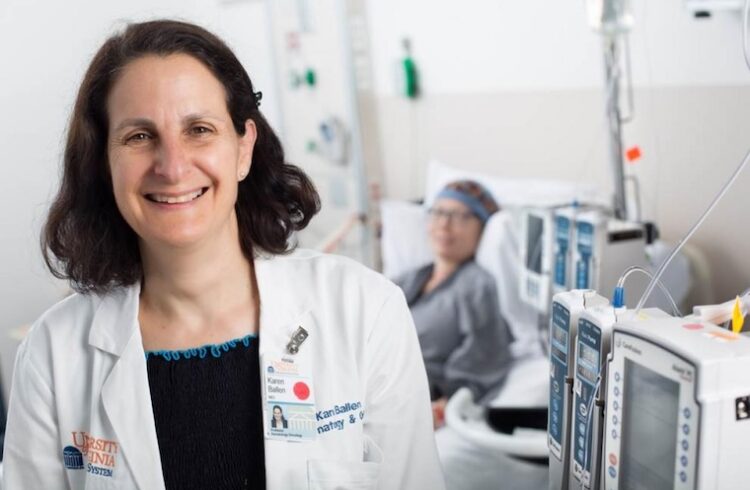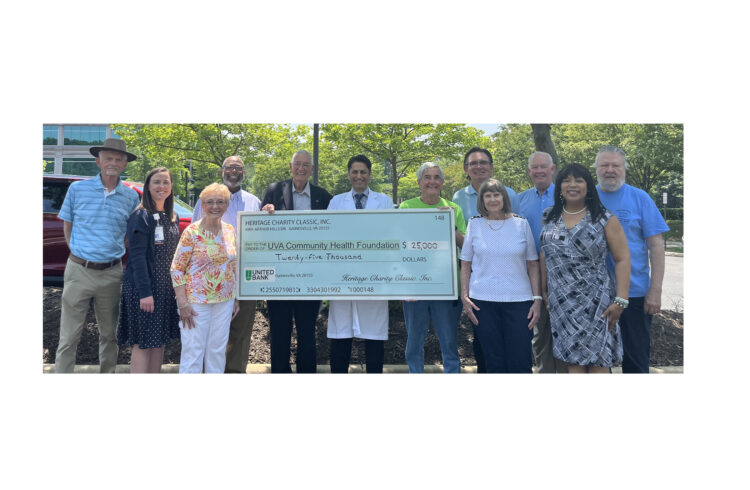
The UVA Cancer Center is further strengthening its melanoma research program with the help of four separate investigator awards totaling $1.25 million. UVA Health System researchers secured nearly one fourth of all awards given internationally by the Melanoma Research Alliance (MRA), a new charitable organization under the auspices of the Milken Institute.
“The fact that UVA investigators brought home four of 17 awards, from a total of more than 100 applications – and from researchers in 12 countries around the world – speaks to our strength in this field,” says UVA Cancer Center Director Michael Weber, Ph.D. “Clearly we are viewed as a significant force in melanoma research.”
Weber received one of only eight Established Investigator Awards granted by the MRA in its initial round of funding. Two of three Young Investigator Awards went to UVA researchers David Mullins, Ph.D., assistant professor of microbiology, and Tim Bullock, Ph.D., associate professor of pathology. Finally, Victor Engelhard, Ph.D., professor of microbiology, secured one of six Team Science Awards, which emphasize collaborations between multiple scientists. Other members of the team include Donald Hunt, Ph.D., UVA professor of chemistry and pathology, and Suzanne Topalian, a professor of surgery at Johns Hopkins University School of Medicine.
The creation of the MRA sparked the genesis for a new UVA melanoma research group, comprised of University physicians and scientists who have an interest in the prevention, detection, diagnosis and treatment of melanoma. Faculty members from more than 10 disciplines, ranging from dermatology to biochemistry and molecular genetics, have joined the Cancer Center’s Melanoma Research Initiative to pool research efforts and resources.
Melanoma is the sixth most common cancer in the United States and is responsible for 80 percent of all skin cancer-related deaths. For scientists, it is one of the most significant cancers to study from both a basic and clinical perspective.
Unlike most cancers, melanoma typically presents as an externally visible tumor, thereby giving scientists the opportunity to examine cancerous growths for molecular changes or signs of progression in the earliest stages of the disease. In addition, studying melanoma from an immunological standpoint is critical, as its tumors sometimes spontaneously regress by what is believed to be an immunological reaction. This characteristic provides scientists a better framework in which to understand the interactions between cancer and the human immune system.
Because melanoma displays such distinct characteristics on basic and clinical levels, an interdisciplinary research approach is crucial in order for investigators to discover more accurate detection and diagnostic techniques and more effective therapies for treatment. The diverse skills and collaborative culture at the University of Virginia provide an opportunity to develop these interdisciplinary approaches.
“We anticipate this venture growing into a complete multi-disciplinary program, with integrated excellence from bedside to bench and bench to bedside,” says Weber.
The Melanoma Research Alliance is an international, cross-disciplinary group of biomedical researchers possessing clinical and scientific expertise to explore, identify and pursue innovative solutions to critical research issues leading to better treatments and a cure for melanoma. MRA is a public charity formed under the auspices of the Milken Institute, with the initial generous founding support of Debra and Leon Black.


